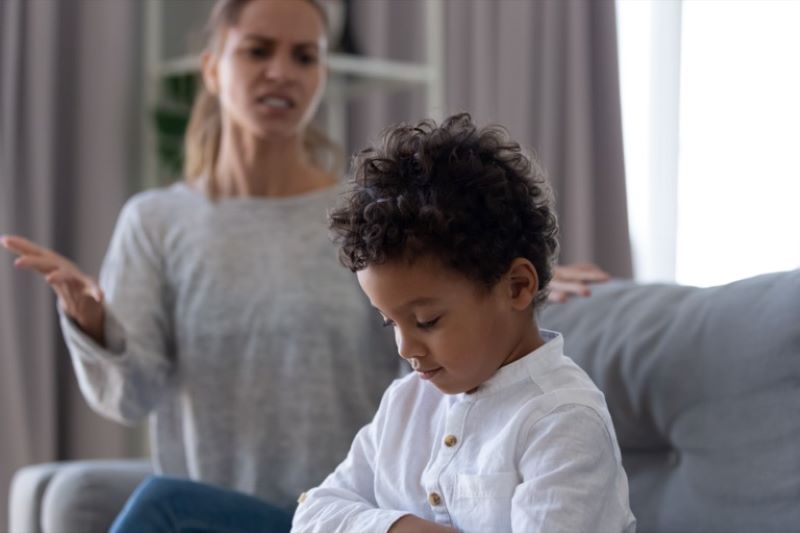Children can be upset and stressed during their parents’ separation. Various emotional and psychological effects can disrupt their sleep patterns. However, it doesn’t have to be a long-lasting devastation or trauma for them. Understanding the factors contributing to their sleep struggles can help you minimize or avoid them altogether. Here are some of the problems arising from the separation that affect their sleep and some tips to support them through the transition:
Change To Their Routine
Children’s sense of security comes from routines and knowing what to expect next. When disrupted, they can become unsettled, increasing anxiety and restlessness surrounding bedtime. Predictability allows children to relax and fall asleep with ease.
Older children can often handle changes to their routine without affecting their sleep compared to toddlers. However, your child may struggle to sleep initially if both parents used to be involved in their bedtime routine. Much like if you or your ex would go on a solo trip, your child’s sleep could sometimes suffer temporarily. However, they quickly adapt to the change if that’s their new normal.
Frequently switching locations where they sleep can make them suffer a blip in their nighttime sleep until they are used to their new second bedroom. Once they are comfortable in both sleep environments, these changes stop triggering sleep disturbances.
Emotional Turmoil
Divorce can heighten conflict and tension around your children, even if you try to shield them. In relatively amicable splits, children can handle things in stride. However, children are very perceptive and sensitive to their surroundings. They will likely regress in inherently stressful situations like witnessing frequent fighting. If they feel like they must choose between parents, kids may act more baby-like or childish while they deal with this emotional turmoil.
This stress and potential regression present a challenge for falling asleep. Children can become needier as bedtime nears, ask for a comfort object they’ve long abandoned, or suck their thumb again. Bedwetting can either come back or appear for the first time. They can have nightmares or night terrors. And it’s not only young children; adolescents can experience oversleeping or insomnia under emotional stress.
Absence or Separation Anxiety
Especially when already feeling stressed, your children can experience separation anxiety from being away from one or both parents. Separation anxiety often rears its ugly head at bedtime, when your child will miss their other parent intensely. The uncertainty and fear of abandonment can drive middle-of-the-night wakings, where they wake up crying for their parents.
Steps To Help Your Child Sleep A Separation
A split is always challenging for parents and children. Focus on what you can control to smooth the transition for your little ones. Here are a few tips to avoid too much upheaval:
Reestablish Consistent Routines
If you can rebuild a solid routine for your child, it will give them the structure and sense of security to sleep well again. Try and remind them of what’s coming next, such as the routine that night for bed or if they go to sleep somewhere else every weekend, then start prepping them for that transition. Soon, the location change will be part of their expected routine.
Avoid band-aid fixes such as letting your little one sleep in bed with you during the transition time. While it helps in the short term, it’s harder to transition back in the long run. Focus on the consistency that your children can count on every day.
Work Towards Open Communication
Whatever age your child is, they will detect changes and want to express themselves. If they are old enough to speak, ensure you give them adequate time and attention to talk through their feelings, even if it’s upsetting for you. These feelings can be anything from anger about the separation to fears about sleeping in a new environment.
Depending on their current feelings, you can focus your conversations around them to alleviate some of their anxieties. For example, if they’re scared to sleep in a new room, you can focus on a safety check together, communicating that each new area is safe after you check it together. Whatever they feel, try incorporating coping mechanisms that helped you go through similar situations as a child.
Strive For A Working Co-Parent Relationship
Open communication isn’t just for your children. Fostering a functional co-parent relationship goes a long way to mitigate any long-term effects your children may suffer from your separation. Some conflict between you and your co-parent is inevitable, but try to keep the dialogue civil and on the same page in front of your children.
Focus on the shared goal of their well-being to keep conversations from getting off track in front of little ears. Keep negative comments about your partner to yourself in front of your children. Vent to friends or family if you need an outlet so your children don’t feel torn between their parents.
Get Professional Help If Needed
If you are struggling to maintain a civil co-parent relationship or noticing consistent struggles with your little ones, professional help can’t hurt. Depending on what’s going on, you may need a family counselor, a mediator, a personal therapist, or a sleep consultant. Whatever you are going through, know you don’t have to go through it alone.


